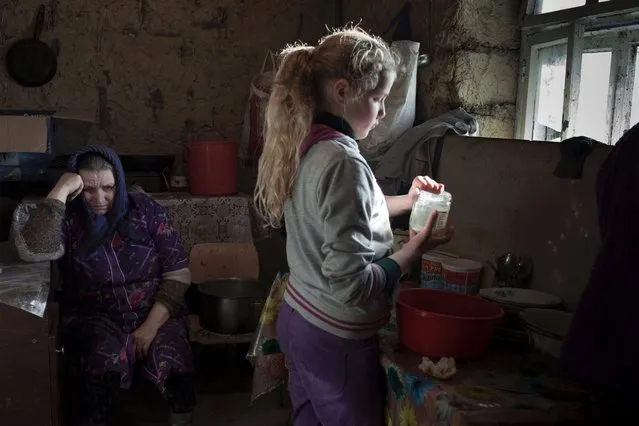
According to the U.S. government, Moldova, one of the poorest countries in Europe, depends on about $1.6 billion annually sent back from the roughly one million Moldovans who left for work in in Europe, Russia, and other former Soviet Bloc countries. Photographer Myriam Meloni went to Moldova to document what she refers to as “social orphans” – children whose parents have emigrated to another country in search of a job and a better future for their families. Here: Lulia is seen washing dishes in her grandmother's house, where she lives. (Photo by Myriam Meloni)
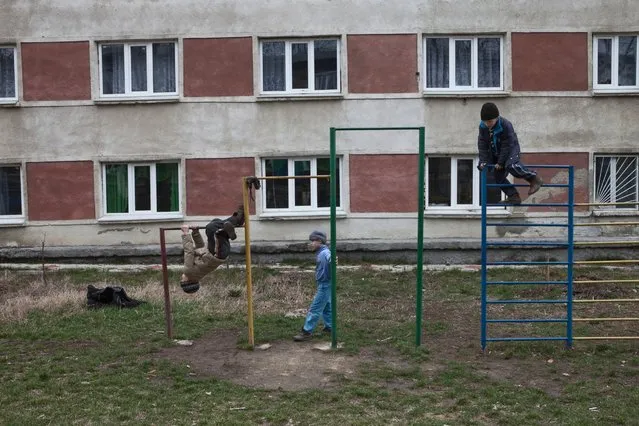
According to UNICEF, “parent drain” is a major feature of family life in Moldova. One in five children has one or both biological parents working abroad. Children left behind end up being cared for by their grandparents, extended family members, or live on their own. In some cases, children are put into residential or foster care. Here: children are seen playing in the park belonging to a school for orphans in the village of Straseni, Moldova. (Photo by Myriam Meloni)
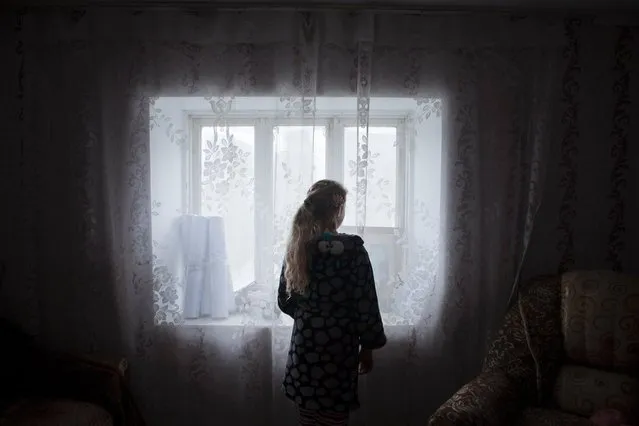
When Julia's parents separated, her parents were both financially unstable so the judge placed Julia and her two brothers in an orphanage in Romania. Julia and her brothers lived in the orphanage for three years until her mother found work in Germany and was able to support them. Julia's mother took her children out of the orphanage and brought them back to Moldova, where they now live with their grandmother. Here: Julia, 10, in Moldova. (Photo by Myriam Meloni)
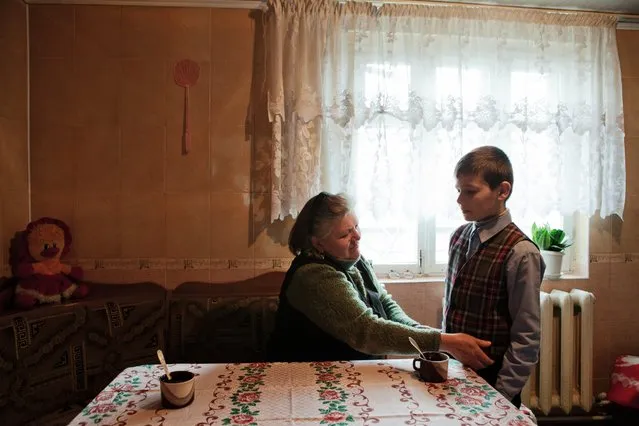
Alexandro, 10, is pictured with his grandmother Nina, 60, at their home. Nina takes care of her two grandchildren by herself. The parents of these children live abroad; their mother works and lives in Italy while their father works and lives in France. (Photo by Myriam Meloni)
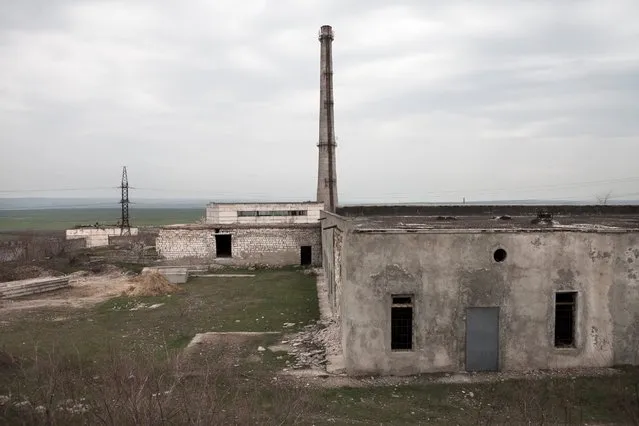
The Republic of Moldova, which became independent from the Soviet Union in 1991, has relied heavily on its rich agriculture throughout its history. According to UNICEF, Moldova has suffered a severe social and economic crisis, largely due to the breakdown of Soviet-era trade and supply links. The U.S government also attributes Moldova's economic struggles to Moldova's large external debt and its vulnerability to political uncertainty and corruption. Here: an abandoned factory is seen in the village of Taraclia, Moldova. (Photo by Myriam Meloni)
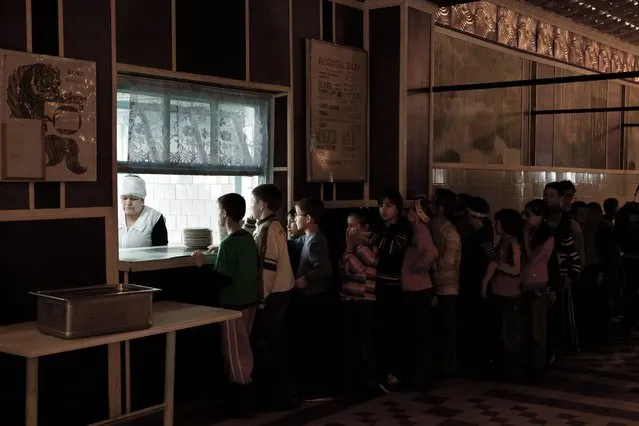
Children are seen waiting in line in the dining room of Straseni's orphanage. The director of the Straseni orphanage says the parents of many children living in the orphanage can't take care of them because of social, economic or legal reasons. In many cases, the parents are working abroad and the children are left behind. (Photo by Myriam Meloni)
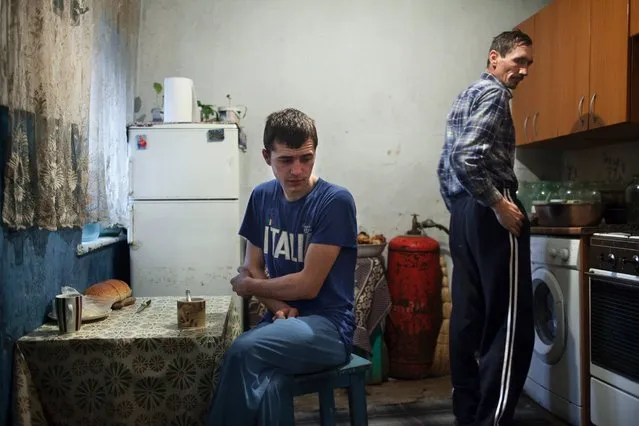
Georghe, 21, is seen with his father in Moldova. When Georghe was 18 years old, he decided to travel to Italy to join his mother and work there. Less than a year later, Georghe decided to move back to Moldova, where he now works as a carpenter and earns less than 5 Euros per day. (Photo by Myriam Meloni)
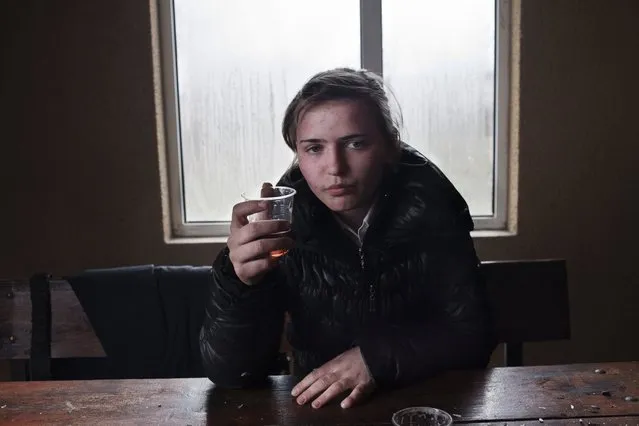
UNICEF Moldova and the Migration Policy Institute have launched an initiative to gather information on children in migrant households in order to determine the impact on children. Both organizations recognize that the effects of labor migration could be both positive and negative on children. Here: Luminitza, 14, is pictured in a neighborhood bar in Moldova. Luminitza's mother lives and works in Italy. (Photo by Myriam Meloni)
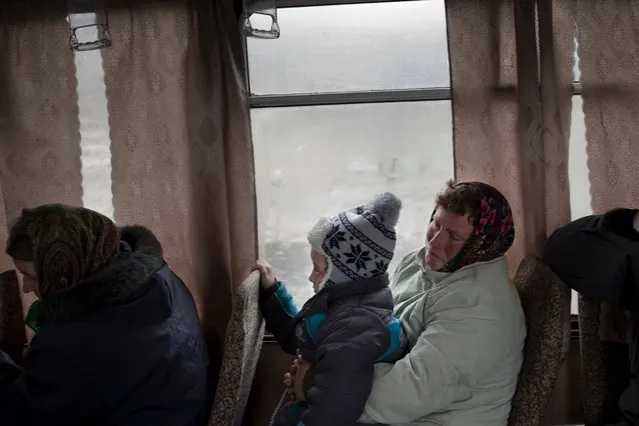
The Migration Policy Institute found that “left-behind children face adverse effects of parental labor migration including problems related to school, such as deteriorating academic performance, declining attendance, and a lack of motivation. Health concerns may arise, including drug use and undermined or deteriorating health”. Here: a grandmother travels with her grandson in Moldova. (Photo by Myriam Meloni)
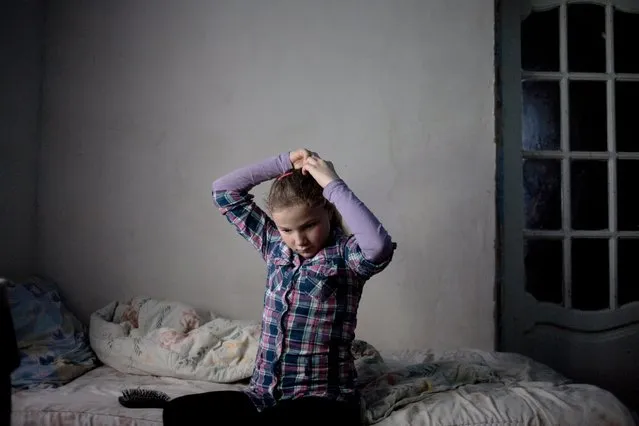
The Migration Policy Institute says “remittances can improve a family’s situation, providing a larger income than available in Moldova, which migrant households typically use towards buying food and clothing, home-improvement projects, better health services, and education for their children”. UNICEF Moldova further notes, “Remittances have been the main cause of a drop in poverty, which tends to be higher in non-migrant households”. Here: Lulia, at her grandmother's home, combs her hair before going to school in Moldova. Her mother works and lives in Germany. (Photo by Myriam Meloni)
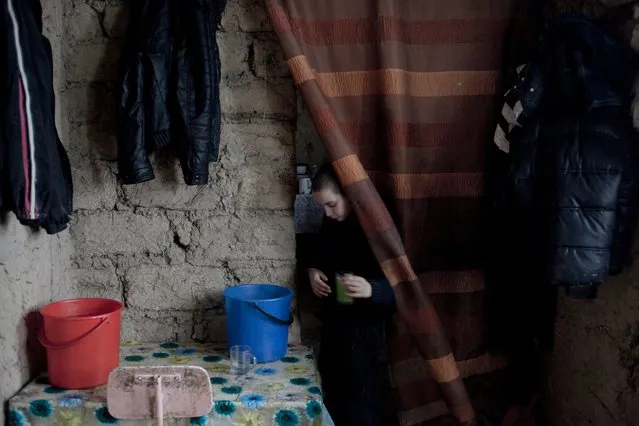
Bogdan, 9, in the kitchen of his grandmother's home where he lives with his brother and sister because their mother is working and living in Germany. A few months ago, their grandmother was diagnosed with uterine cancer. The constant pain caused by this kind of cancer is making it difficult for her to care for her three grandchildren. (Photo by Myriam Meloni)
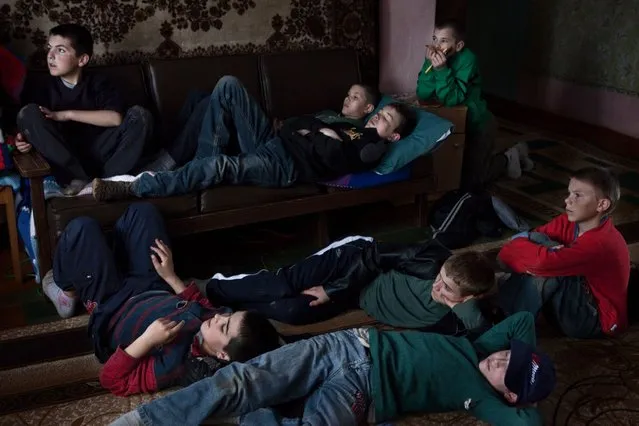
A group of children in one of the common rooms of Straseni's orphanage. Staseni's orphanage was originally built to receive orphans of World War II. (Photo by Myriam Meloni)
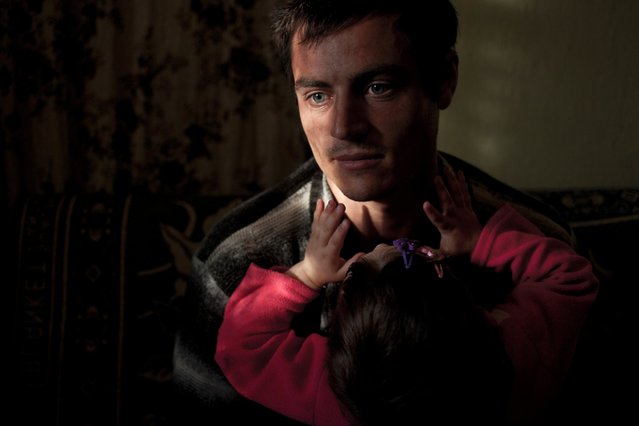
Ina, 2, is seen in the arms of her father Steopa, 24, in their home. Ina's mother went to work in Russia when she was 7 months old and has since been only able to return home for short periods of time. (Photo by Myriam Meloni)
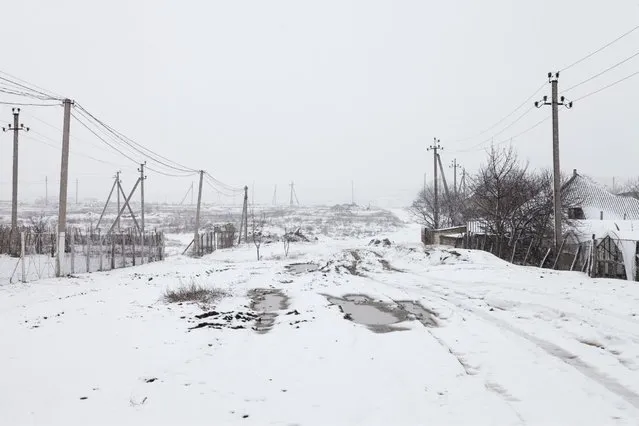
Moldovan landscape seen during the cold winter. (Photo by Myriam Meloni)
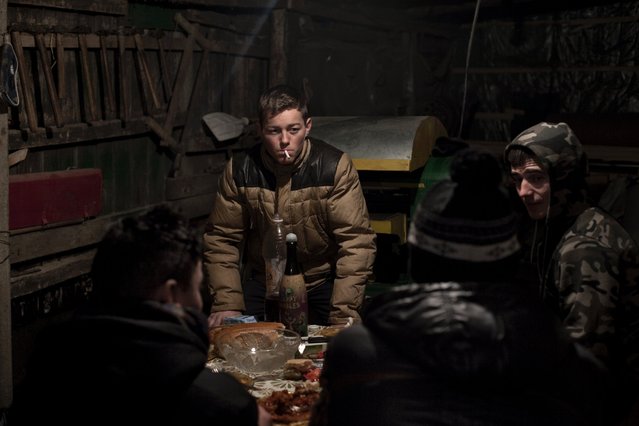
Andrei, 17, is pictured with his friends. Andrei's father and brother both live in Italy and he is waiting to turn 18 to join them. According to the photographer, Myriam Meloni, Andrei, like most young Moldovan she encountered, sees no future in Moldova and dreams of going to work in another country. Meloni explains, “The younger generation sees their friends build a bigger house, have a new motorbike and all this stuff is associated with the money sent by their migrant parents. So, to the younger generation, migration is often associated with a better life”. (Photo by Myriam Meloni)
12 Mar 2016 14:57:00,
post received
0 comments
